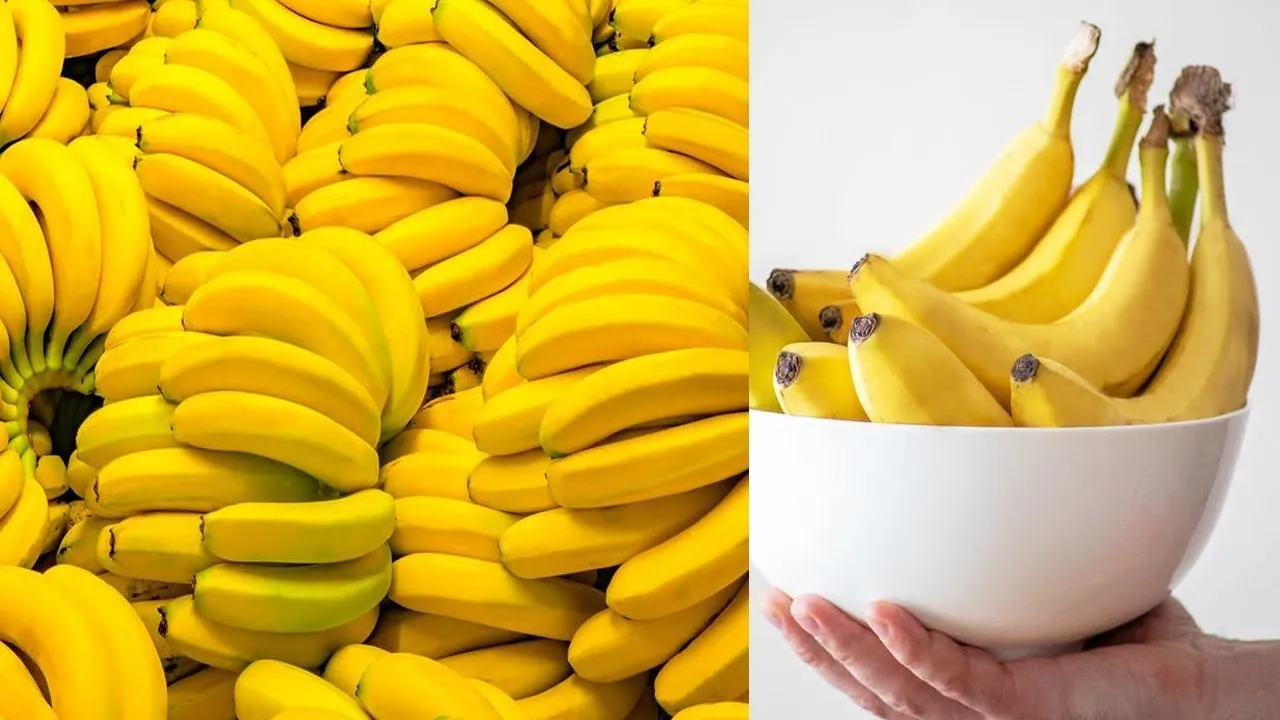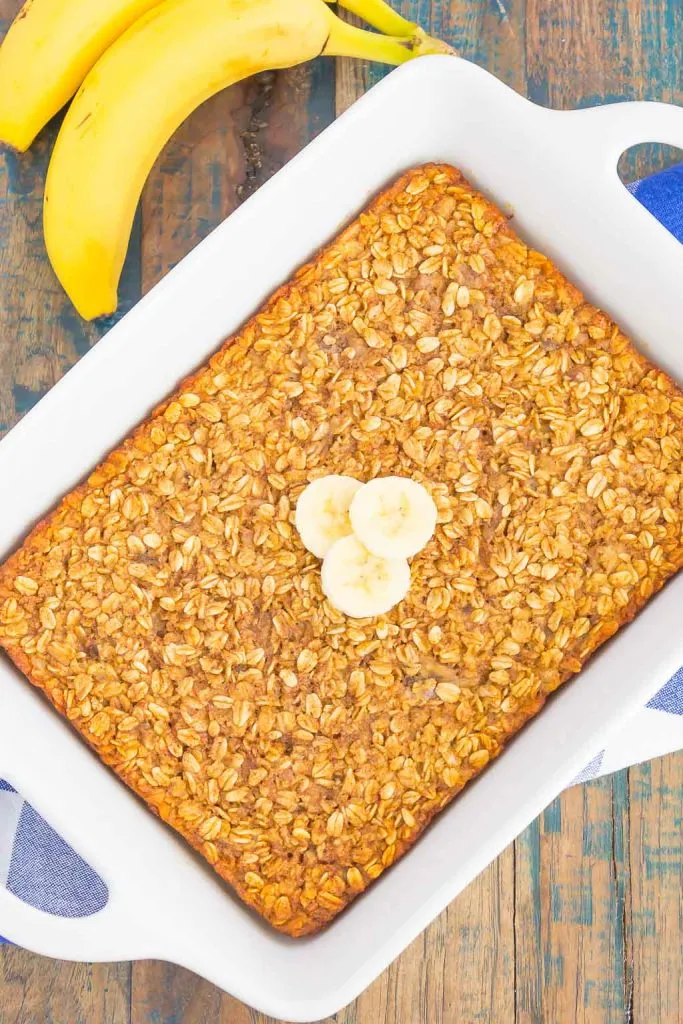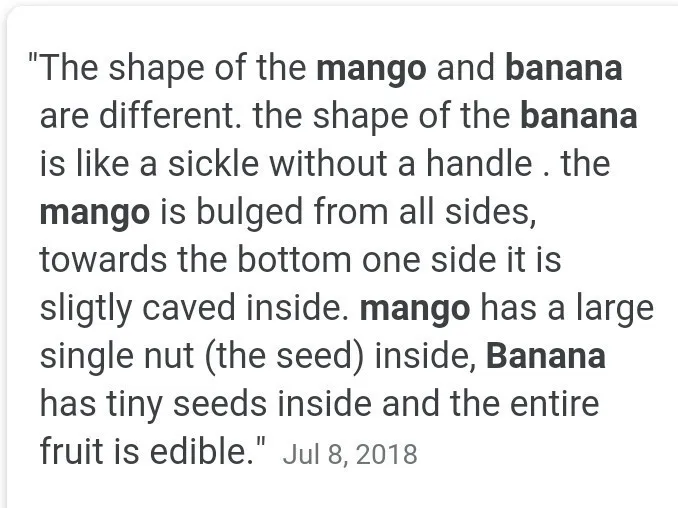Everything You Need to Know About the Documentary “Banana”: Is It Worth Watching?
Have you ever stopped to consider just how much there is to learn about bananas? This humble fruit, while seemingly ordinary, has a rich history and a complex story; one that is explored in the documentary “Banana”.

In this article, we’ll provide you with everything you need to know about this fascinating film: from an overview of the topic, to the pros and cons of watching it, to critics’ reviews. By the end, we’ll make a recommendation on whether or not “Banana” is worth watching at all.
If you’re looking to deepen your knowledge of this ubiquitous fruit, or simply interested in learning more about “Banana”, keep reading.
Introduction to the topic of “Bananas”

Let’s peel back the layers of knowledge surrounding the humble banana. This versatile fruit has been a staple in cuisines around the world for centuries, but what do we really know about it?
Firstly, bananas are botanically classified as berries, which may come as a surprise to some. They are also rich in vitamins and minerals such as potassium and vitamin C, making them a popular choice for athletes looking to refuel after exercise.
But did you know that bananas also have medicinal properties? Studies have shown that they can aid digestion and even help regulate blood sugar levels.
The cultivation of bananas is also an interesting topic to explore. Unlike other fruits that grow on trees, bananas actually come from large herbaceous plants that are technically considered grasses. And because they don’t need pollination to produce fruit, banana plants can be cloned from existing ones – leading to concerns about genetic diversity in commercial crops.
Overall, there is much more to this yellow fruit than meets the eye. Whether you’re enjoying a simple snack or delving deeper into its cultural and agricultural significance, there’s always something new to learn about bananas.
An overview of the documentary “Banana”
The documentary “Banana” provides a deep dive into the fascinating world of this beloved fruit. From its origins in Southeast Asia to its widespread consumption around the globe, “Banana” explores every aspect of this versatile and nutritious plant.
Through interviews with farmers, scientists, and industry experts, the film sheds light on the challenges facing banana cultivation today. It delves into topics such as genetic diversity, pest management, and labor practices in the industry.
But “Banana” is more than just an informative documentary. It also raises important questions about our relationship with food and how we can work towards a more sustainable future. By highlighting the issues facing banana production today, it encourages viewers to think critically about their own consumption habits and how they can make a difference.
Whether you’re a longtime fan of bananas or simply curious about this ubiquitous fruit, “Banana” is sure to captivate and educate. Its blend of scientific research and human interest stories makes for an engaging viewing experience that will leave you with a newfound appreciation for one of nature’s most delicious gifts.
What are the pros and cons of watching “Banana”?
Bananas are a staple fruit in many households around the world. With their sweet taste and numerous health benefits, it’s no wonder that they are a popular choice for snacking, baking, and even smoothie-making. However, watching “Banana”, a documentary about the history and impact of this fruit, may have its pros and cons.

On one hand, watching “Banana” can be an informative experience for those looking to learn more about the fruit’s origins and how it has shaped cultures around the world. The documentary delves into topics such as banana production practices, fair trade initiatives, and even the impact of disease on banana crops. It provides viewers with a deep understanding of how bananas have become such an integral part of our modern society.
On the other hand, there are some potential downsides to watching “Banana”. For example, some viewers may find that it highlights negative aspects of banana production that they were previously unaware of. This could cause them to feel guilty or conflicted about consuming bananas in the future.
Additionally, while “Banana” provides valuable information about various issues related to bananas, it does not necessarily provide solutions or ways for viewers to take action. Some viewers may feel frustrated by this lack of actionable advice.
Overall though, watching “Banana” can be an eye-opening experience for those interested in learning more about this versatile fruit. While there may be some potential drawbacks to consider before tuning in, ultimately it is up to each individual viewer to decide if watching “Banana” is right for them.
Critics’ reviews of “Banana”
The humble banana has been a staple in many diets for centuries, but how does it fare in the world of critics? While some may dismiss it as just another fruit, others have sung its praises and highlighted its numerous benefits.
Critics have noted the banana’s versatility – from being eaten raw or cooked to being used in smoothies and baked goods. Its natural sweetness also makes it a popular choice among those looking for a healthier alternative to processed sugars.

« Beyond Bananas: Delicious Substitutes for Baked Oatmeal
Mastering the Art of Harvesting Banana Squash: A Guide to Knowing When it’s Ripe and Ready »
But what about its nutritional value? Critics have pointed out that bananas are an excellent source of fiber, potassium, vitamin C, and vitamin B6. These nutrients can help regulate blood sugar levels, support heart health, aid digestion, and boost overall immune function.
Despite these positive reviews, some critics caution against overconsumption due to their high sugar content. They also note that bananas are not suitable for those with certain medical conditions such as diabetes or kidney disease.
In summary, while opinions may vary on the taste and texture of bananas among critics, there is no denying their nutritional value and versatility in the kitchen. So whether you’re eating them as a snack or incorporating them into your favorite recipes – don’t be afraid to go bananas!
Conclusion: Recommendation for watching “Banana” or not
After thorough research and analysis, it is recommended that those looking to learn more about bananas should definitely watch the documentary “Banana.” The film provides a comprehensive and insightful look into the world of banana production, highlighting both its positive impact on communities and the negative consequences of exploitative practices.
Through captivating storytelling and stunning visuals, “Banana” sheds light on important issues such as labor rights, environmental sustainability, and socio-economic inequality. It challenges viewers to think critically about their consumption habits and consider the consequences of supporting unethical companies.
Furthermore, “Banana” offers practical solutions for individuals to make a positive change in their own lives. From choosing fair trade products to supporting local farmers, there are many ways we can all contribute towards a more equitable banana industry.
In summary, watching “Banana” is not only informative but also inspiring. It encourages us to become more conscious consumers while emphasizing the importance of social responsibility in our daily choices. So grab some popcorn and settle in for an eye-opening journey into the fascinating world of bananas.
Check out our other articles to find out even more about banana.
Overall, the documentary “Banana” is a comprehensive look at this beloved fruit. From its history and cultivation to its importance in human nutrition, it provides viewers with an educational experience that can’t be found anywhere else. Ultimately, we recommend watching “Banana”, as it may provide you with new insights into one of nature’s most amazing creations – the banana! If you’d like to learn even more about bananas and their place in our lives, then check out our other articles to find out even more about banana.
















:max_bytes(150000):strip_icc()/banana-cut-half-575f0f265f9b58f22ee1cac6.jpg)